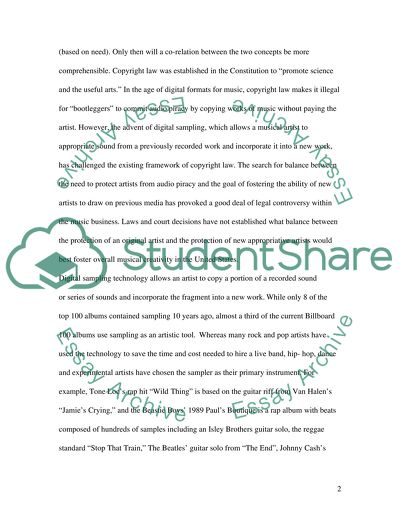Cite this document
(Music Sampling and Copyright Law Assignment Example | Topics and Well Written Essays - 2000 words, n.d.)
Music Sampling and Copyright Law Assignment Example | Topics and Well Written Essays - 2000 words. https://studentshare.org/law/1522723-music-sampling-and-copyright-law
Music Sampling and Copyright Law Assignment Example | Topics and Well Written Essays - 2000 words. https://studentshare.org/law/1522723-music-sampling-and-copyright-law
(Music Sampling and Copyright Law Assignment Example | Topics and Well Written Essays - 2000 Words)
Music Sampling and Copyright Law Assignment Example | Topics and Well Written Essays - 2000 Words. https://studentshare.org/law/1522723-music-sampling-and-copyright-law.
Music Sampling and Copyright Law Assignment Example | Topics and Well Written Essays - 2000 Words. https://studentshare.org/law/1522723-music-sampling-and-copyright-law.
“Music Sampling and Copyright Law Assignment Example | Topics and Well Written Essays - 2000 Words”. https://studentshare.org/law/1522723-music-sampling-and-copyright-law.


